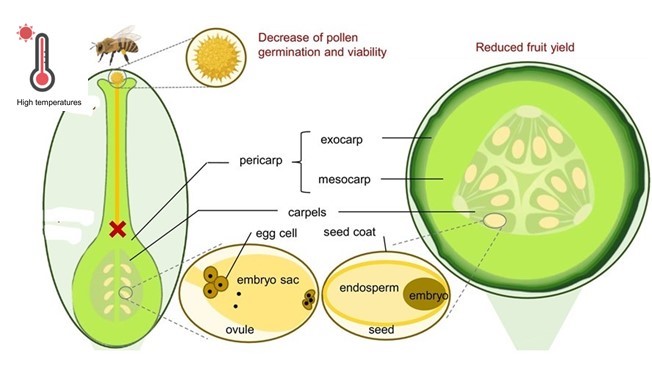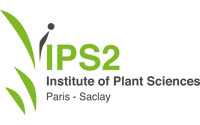Ensuring yield stability using parthenocarpy
Parthenocarpy, a pollination-independent fruit set mechanism to ensure yield stability
In a recent study, published in the journal Trends in Plant Science, scientists from the FloCad team at IPS2 provided a comprehensive review of the molecular mechanisms that drive fruit set. Fruit development is a crucial process for the reproduction of flowering plants and serves as a significant food source globally. However, climate change poses a substantial threat to fruit yields, as it disrupts pollination and fertilization processes. These processes are particularly sensitive to extreme temperatures, inadequate light, and the decline in pollinator populations. This review article shed light on the molecular mechanisms underlying parthenocarpy, corresponding to the development of fruits without fertilization, highlighting the roles of transcription factors, non-coding RNAs, and key phytohormones, such as auxin, gibberellin, and cytokinin. The study delves into these findings, proposing regulatory models, and identifying critical areas where further research is needed. This deeper understanding of parthenocarpy could pave the way for innovative strategies to safeguard and enhance fruit production in the face of growing environmental challenges.

22/10/2024
